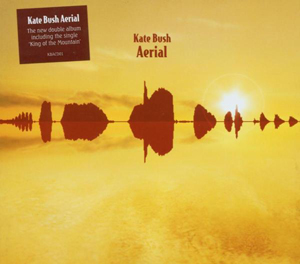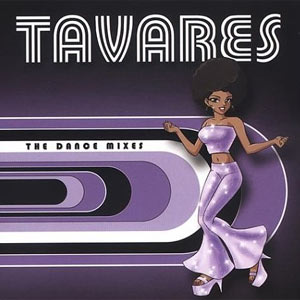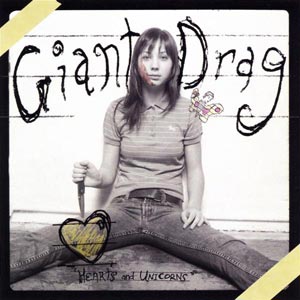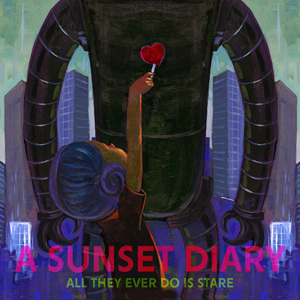|
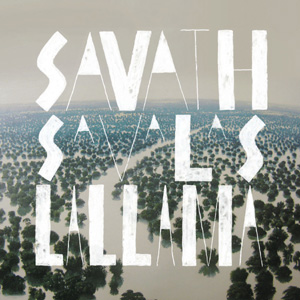
 |  |
Many of those familiar with the tireless musician, producer and songwriter Guillermo Scott Herren often cite his Prefuse 73 albums “Vocal Studies +Uprock Narratives” and “One Word Extinguisher” as favourites from his vast catalog. These landmark albums have inspired a generation of producers whose names are now commonplace on your favorite music journalist’s ‘Year End Best’ or ‘Names To Watch’ lists. Flying Lotus, Nosaj Thing, Hudson Mohawke and Bullion are just some who were paying attention when critics first salivated over Prefuse’s stilted, hip hop-inspired programming and, searching for a word to describe this new style of music, crudely called it ‘glitch hop’.
But Herren’s first album on Warp Records, the label that has become somewhat of a bastion for a generation of the Prefuse-inspired, wasn’t a ‘beat’ album. Those who missed his “Folk Songs For Trains, Trees and Honey” (1998) missed a key introduction to a most intriguing portion of Herren’s multi-faceted musical persona: that of Savath & Savalas.
Savath & Savalas continued into the 2000s as the oft-overlooked “Herren-side project”. A pair of EPs, “Rolls and Waves” and “Immediate Action” came out in 2002. And, following a four-year-sojourn to Barcelona, Herren released “Apropa’t” – a collaboration with Catalan singer and songwriter Eva Puyelo Muns. The album, described by Herren as “almost straight-up, Catalan/Castellano vocal-based folk steez", was recorded in Herren’s Barcelona home and embellished and mixed with Tortoise’s John Herndon and John McEntire in their Soma Studios. This beautiful album, captured with the low-fi production techniques that draw many to the folk and psychedelic masterpieces of the early 70s, cajoled – and never forced – its listeners towards introspection. It’s no surprise that “Apropa’t” became a critical and cross-over success in its home country; perhaps it is surprising that a Catalan acid-folk record reached the ears of the cognoscenti the world over. “There is no fake authenticity in this musical exploration, and Herren’s musical palette is impressively wide-ranging", wrote Mike Barnes in The Wire, “Impossible to pigeonhole, on first listen “Apropa’t” is almost casual in its effortless brilliance." "Enveloped by an amazing ensemble of musicians, “Apropa’t” seems born out of passion and conviction", wrote BBC reviewer James Rutledge, bestowing the album a glowing 9/10 review.
Why Herren’s solo follow-up, “Golden Pollen”, fell largely on deaf ears is perplexing. Then again, 2007 marked the beginning of the end of the excessive exuberance in a blingy, hip hop-dominated music world. In those climes, a haunting, ethereal musical journey spread cleanly across the course of a slowly unwinding hour was a tough sell.
So, by the end of 2008, Herren decided he needed to take a fresh approach. The normal channels didn’t seem to be working, so he called his old friend Egon, general manager of Los Angeles-based Stones Throw Records. While a phone call to an imprint best known for its hip hop releases might not have seemed to be the most logical choice, Herren saw beyond the label’s most famous releases and understood the left-field bent Stones Throw follows. He had emailed Egon an idea in 2003 that resulted in the Tortoise side-project Bumps, released on Stones Throw in 2007. This call followed the same trajectory, and after an hour-long catch up, a meeting in New York was set.
That meeting sealed the fate for “Golden Pollen”’s follow-up. “La Llama”, a heady excursion into Catalan folk melodies and the shapes of rhythm, had languished in label-limbo as Herren sought a partner that would give the project the attention it deserved. Herren, Puyuleo Muns and a new addition to the band, Roberto Carlos Lange, shared a love for South-American psychedelic music and Herren found inspiration for “La Llama” in the early 70s independent music scene that had briefly flourished in Recife, Brazil. At their meeting, he and Egon discussed neglected visionaries like Marconi Notaro, Flaviola, the revolutionaries Lula Cortes and Ze Ramalho and their Solar label alongside the influence of the late J.Dilla, Stones Throw’s success with Madlib’s numerous noms de plume, recent Stones Throw signings like Koushik and Herren’s vision for a musical future that would unify his distinct but complementary musical personalities. They sketched out deal terms on a napkin, and parted ways.
“La Llama” had found a home.
Stones Throw is proud to release this record. Somehow a minimal Catalan psych-folk album inspired by Brazilian counter-current musical giants falls in line with Mars Volta-leader Omar Rodiguez Lopez’s prog-rock opus “Old Money” and Madlib’s “Beat Konducta 5&6”, a tribute to J.Dilla. It is sure that this album, an acoustic excursion, drenched in Puyelo Muns’ breathy vocals, maintains some of the minimal electronic sensibilities that Herren allows to run throughout his different guises. But it marches to its own beat. Defiantly cerebral, not made for dancing, no ‘stand-out-single’…Well, for Stones Throw, that’s just par for the course. “La Llama” fits perfectly in our ever-expanding musical tapestry.
Tracklisting - «Intro»
- «La Llama»
- «Las 7 Sendas»
- «Carajillo»
- «Una Cura»
- «Pavo Real»
- «El Colleccionista»
- «Sounds Of Bowery»
- «La Loba»
- «Pajaros En Cadaques»
- «Me Voy»
- «Untitled»
- «Barceloneta»
- «Postlude»
- «No Despierta»
- «Adeu»
(Quelle: Groove Attack, 2009)
FORMAT: CD
|


